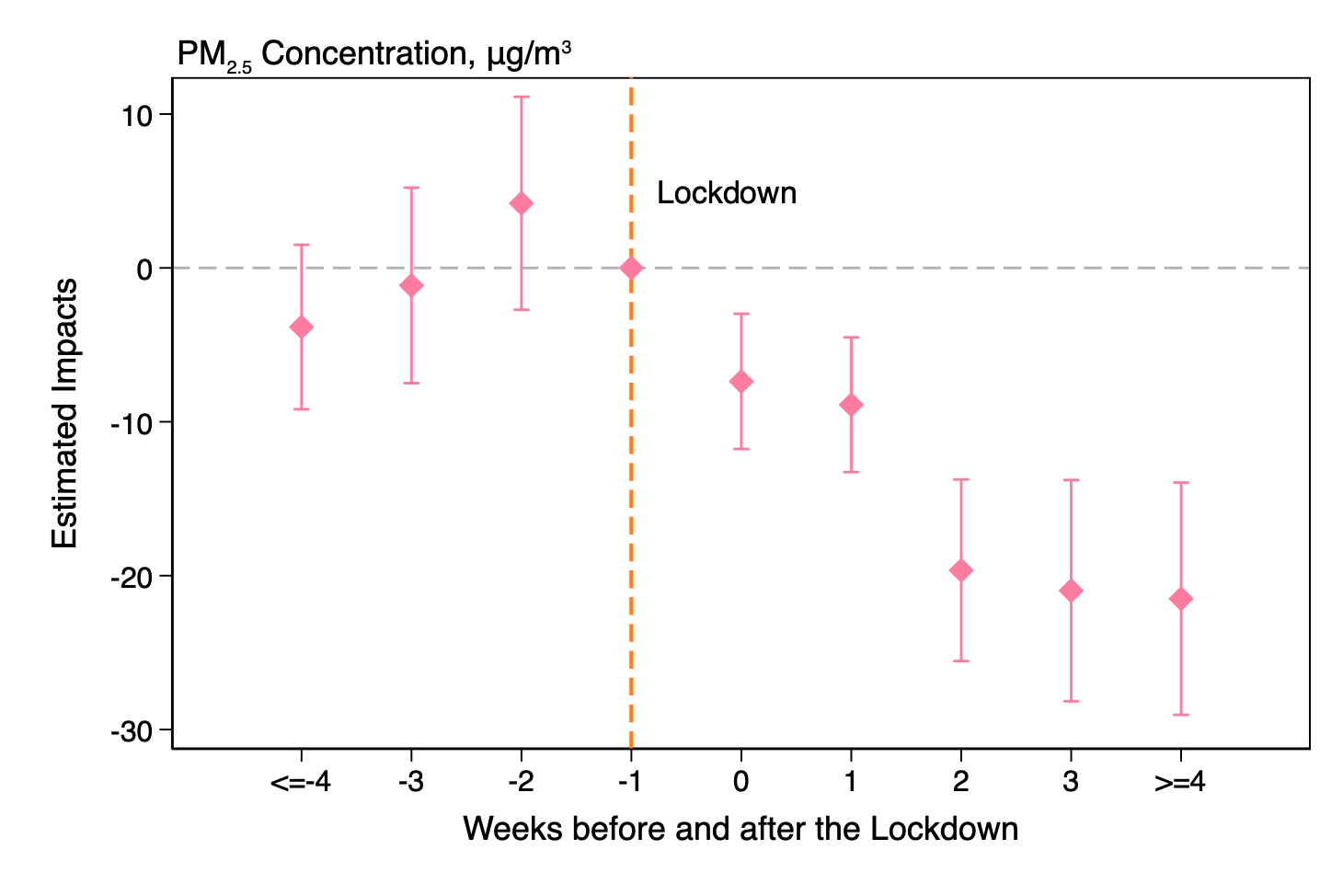A team of researchers at the Hong Kong University of Science and Technology (HKUST) estimated that about 24,000 to 36,000 early mortality cases caused by air pollution may have been delayed due to Mainland China's earlier mobility-restriction management (city lockdown*) to curb the spread of COVID-19, as such measures have brought down the amount of Fine Particulate Matter (PM2.5) at lockdown cities by a notably 25 per cent year-on-year during the first two months of this year - significantly elevated the region's air quality.

Led by Prof. HE Guojun, Assistant Professor of Social Science and Institute for Emerging Market Studies at HKUST, the research team tracked air quality data of 324 large and medium-sized mainland cities from January 1 to March 1 this year - including 95 cities which had been locked down. The team found that the concentration of PM2.5 has dropped by 25% in the lockdown areas over the period. In densely populated cities in the North - such as Zhengzhou, capital of Henan Province which still rely largely on fossil fuel for power, the drop even reached 50%. The improvement of air quality in big industrial cities has also benefited cities at their vicinity - which saw a drop of some 8% in the concentration of PM2.5 over the same period. Result of the study was recently published in "Nature Sustainability" - a journal affiliated to the prestigious scientific journal "Nature".






